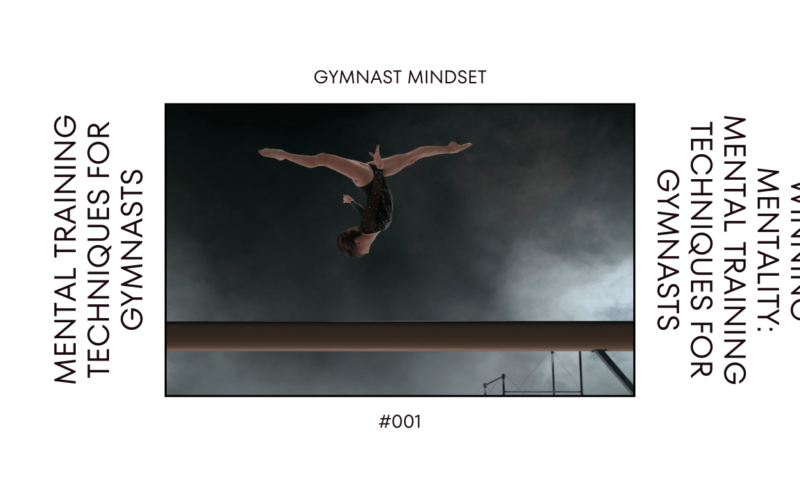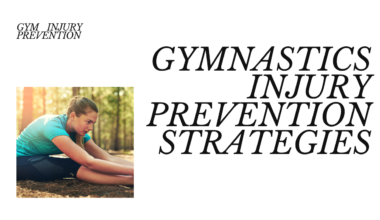Gymnastics is a sport that demands peak physical fitness, agility, and power. However, the most successful gymnasts understand that mental strength plays an equally crucial role in achieving their full potential.
While perfecting complex routines on the vault, uneven bars, or balance beam requires rigorous physical training, the ability to manage nerves, maintain focus, and bounce back from setbacks is what separates good gymnasts from champions.
This article delves into the key mental skills gymnasts need to cultivate and explores various mental training techniques to enhance performance.
We’ll discuss the importance of goal setting, developing mental toughness, and utilizing techniques like visualization, positive self-talk, and relaxation strategies.
Key Mental Skills for Gymnasts
Goal Setting: Charting the Course to Success
The journey toward peak performance begins with setting clear and well-defined goals. SMART goals (Specific, Measurable, Achievable, Relevant, and Time-bound) provide gymnasts with a roadmap for progress.
Setting short-term goals, like mastering a specific element within a routine, helps maintain focus during practice sessions.
Long-term goals, such as qualifying for a specific competition or achieving a certain score, provide a sense of direction and motivation over extended periods.
The process of setting goals itself instills a sense of ownership and empowers gymnasts to take charge of their development.
Mental Toughness: Forging a Champion’s Mindset
The ability to handle pressure, fear, and competition anxiety is a cornerstone of mental toughness.
Gymnasts need to develop strategies for staying focused and composed under the spotlight.
This might involve deep breathing exercises to manage pre-competition jitters or visualization techniques to maintain focus during routines.
Learning to reframe negative thoughts and channel nervous energy into positive motivation is another crucial aspect of developing mental toughness.
Read More: Gymnastics and Injury Prevention Strategies
Effective Mental Training Techniques
Now that we’ve established the critical mental skills gymnasts need, let’s explore specific techniques to train and refine them:
Visualization: Seeing Success Before It Happens
Visualization, also known as mental imagery, involves mentally rehearsing routines and skills with meticulous detail.
By picturing themselves executing flawless routines in their mind’s eye, gymnasts can improve their neural pathways, making the movements feel more familiar and ingrained in their muscle memory.
Visualization also helps build confidence by allowing gymnasts to experience the feeling of a successful performance beforehand.
Positive Self-Talk: Replacing Doubt with Belief
The constant internal dialogue that takes place in an athlete’s mind significantly impacts performance.
Replacing negative self-talk with positive affirmations can be a game-changer. Instead of dwelling on past mistakes or fearing future failures, gymnasts can adopt positive statements like “I am strong,” “I can do this,” or “I am focused and ready.”
Repeating these affirmations during practice and competition helps drown out negative thoughts and fosters a strong belief in one’s abilities.
Meditation and Relaxation Techniques: Finding Calm in the Chaos
Gymnastics can be a stressful sport, and managing anxiety is crucial for optimal performance.
Techniques like deep breathing exercises, mindfulness meditation, and progressive muscle relaxation can help gymnasts stay calm and focused under pressure.
These practices allow gymnasts to quiet their minds, reducing pre-competition jitters and maintaining composure during training sessions. By learning to manage stress effectively, gymnasts can channel their energy into performing at their best.
Gratitude Journaling: Cultivating Happiness and Resilience
Gratitude journaling is a powerful tool for boosting overall well-being and mental resilience.
By taking time each day to reflect on things they are grateful for, gymnasts can cultivate a more positive outlook.
This practice fosters a sense of contentment and appreciation, which can translate into improved motivation and focus.
A grateful mindset allows gymnasts to bounce back from setbacks more effectively and maintain a positive perspective even in the face of challenges.
Additional Strategies for Peak Performance
Embracing a Growth Mindset
Developing a growth mindset is crucial for gymnasts who want to reach their full potential.
This mindset encourages the belief that skills and abilities can be developed through effort and practice.
Instead of viewing mistakes as setbacks, gymnasts can approach them as learning opportunities. This growth-oriented perspective allows them to persevere through challenges and continuously improve over time.
Learning from Mistakes: Turning Setbacks into Stepping Stones
Mistakes are an inevitable part of the learning process in any sport. However, the key lies in how gymnasts learn from these experiences.
Analyzing mistakes constructively allows for identifying areas for improvement and prevents repeating the same errors in the future.
Developing self-forgiveness and moving on from setbacks is just as important. Dwelling on past mistakes can hinder progress, whereas a forward-looking attitude allows gymnasts to focus on future success.
Building Confidence: Believing in Yourself
Confidence is a cornerstone of peak performance in gymnastics. Gymnasts who believe in their abilities are more likely to push themselves and overcome challenges.
Building confidence requires a multi-pronged approach. Positive reinforcement from coaches and teammates fosters a supportive environment where mistakes are seen as opportunities to learn, not reasons for criticism.
Additionally, focusing on personal bests and celebrating incremental improvements helps gymnasts build self-belief over time.
Integrating Mental Training for Optimal Performance
Mental training is no longer an optional extra but an essential component of a gymnast’s development.
By incorporating these techniques into their training routines, gymnasts can elevate their performance to new heights.
The journey to mastering the mental game takes time and dedication.
However, with consistent practice and a commitment to self-improvement, gymnasts can develop the mental fortitude and focus necessary to conquer their anxieties, excel in competition, and achieve their full potential.
Why Mental Training is Essential for Gymnasts
Here’s why mental training techniques are the missing piece in the puzzle of peak gymnastics performance:
1. Conquering Competition Anxiety
The bright lights, the pressure to perform, the fear of failure – these are all mental hurdles that can derail even the most skilled gymnast.
Techniques like visualization and deep breathing exercises equip gymnasts to manage competition anxiety effectively.
By visualizing themselves performing flawlessly and practicing calming techniques, gymnasts can enter competitions with a clear mind and focused determination.
2. Building Confidence and Resilience
Self-doubt can be a gymnast’s worst enemy. Mental training techniques like positive self-talk and goal setting foster a growth mindset and unshakable confidence.
Positive affirmations like “I am strong,” “I can do this,” and “I am focused and ready” replace negative self-talk, boosting self-belief and fostering a “never give up” attitude.
Setting SMART goals provides a roadmap for progress, keeping gymnasts motivated and celebrating achievements that build overall confidence and resilience.
3. Maintaining Focus Under Pressure
Gymnastics routines demand razor-sharp focus and impeccable execution.
Techniques like mindfulness meditation train gymnasts to stay present in the moment, eliminating distractions and anxieties.
By focusing on their breath and bodily sensations, gymnasts avoid dwelling on past mistakes or future anxieties, allowing them to execute each element with laser-like focus.
4. Learning from Setbacks
Mistakes are inevitable in any sport, but how you handle them defines your mental strength.
Mental training techniques like journaling and constructive self-analysis equip gymnasts to learn from setbacks.
By analyzing mistakes objectively, gymnasts can identify areas for improvement and prevent repeating the same errors. This growth mindset fosters resilience and allows them to bounce back stronger from challenges.
5. Building Mental Toughness
The mental toughness required for gymnastics is about more than just managing nerves.
It’s about pushing through pain, overcoming challenges, and maintaining composure in the face of adversity.
Mental training techniques can develop this mental toughness by building a tolerance for discomfort.
Visualization allows gymnasts to rehearse mentally for demanding routines, while positive self-talk helps them maintain focus and perseverance even when faced with fatigue or frustration.
Conclusion
Mental training is just as crucial as physical training for gymnasts.
By incorporating these techniques into your routine, you can develop the mental toughness and focus needed to perform your best.
Remember, a strong mind can overcome even the most challenging obstacles, propelling you towards achieving your gymnastics goals.
FAQs
How can I improve my focus and concentration during practice and competitions?
Practice mindfulness exercises like meditation or deep breathing to quiet your mind and enhance focus. Visualization techniques can also be helpful, where you imagine yourself flawlessly executing your routines.
What can I do to overcome performance anxiety?
Develop positive self-talk to combat negative thoughts and self-doubt. Positive affirmations can boost your confidence and remind you of your capabilities. Relaxation techniques like progressive muscle relaxation can also help manage anxiety before competitions.
How can I learn from my mistakes and bounce back from setbacks?
Analyze mistakes constructively, focusing on what you can learn and improve upon. Celebrate your successes, no matter how small, to maintain motivation. Develop a growth mindset that sees challenges as opportunities for learning and growth.
Is it okay to feel nervous before a competition?
Some pre-competition nerves are normal and can even be beneficial, keeping you alert and focused. However, if anxiety becomes overwhelming, practicing relaxation techniques and seeking support from coaches or sports psychologists can be helpful.

